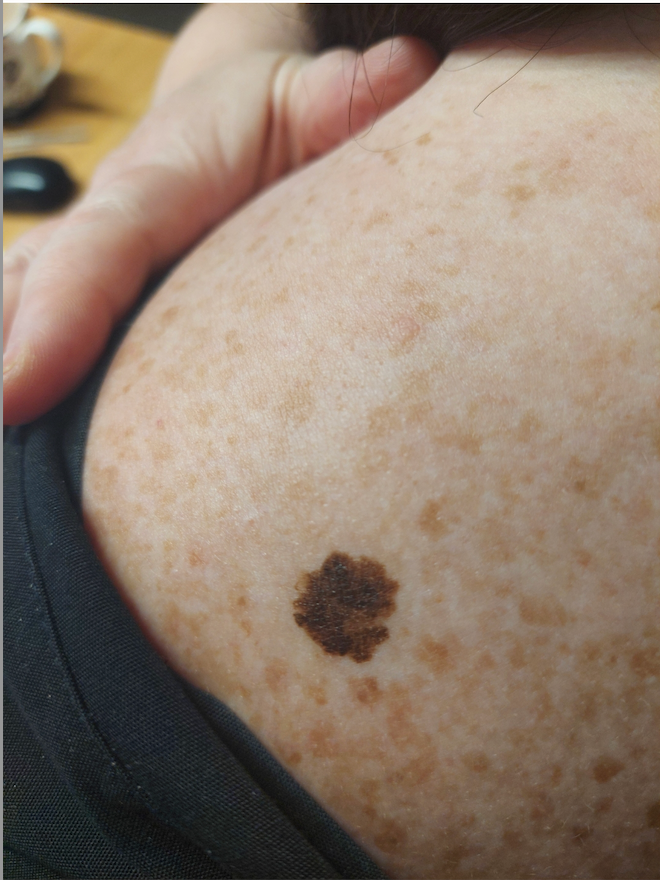When 46-year-old Lynsey Robertson helped launch a new AI skin cancer screening tool at the GP surgery where she worked, she knew she would be among the first to try it out – but she never expected to become one of its first patients.
Just hours after Lynsey used the technology, the system flagged a mole on her skin as high risk, which was soon revealed to be a deadly melanoma.
Lynsey, an office manager at Buckshaw Village Surgery in Preston, Lancashire, had been overseeing the rollout of its artificial intelligence skin cancer screening service. Curious, she decided to scan a patch of skin that she had largely ignored but that had slowly changed colour.
The system flagged the lesion for urgent review under the NHS’s two-week suspected cancer pathway. That same day, Lynsey’s referral was sent off to Chorley Hospital.
“I couldn’t believe it,” she said. “I just kept thinking, what if I hadn’t said anything?”

The mole didn’t hurt and although friends had occasionally asked about it, she had always dismissed it, assuming it wasn’t serious enough to bother a doctor with.
“I’d had it for years,” she said. “It wasn’t causing me any trouble. I thought I’d be wasting the GP’s time.”
She was quickly booked in for minor surgery to remove the mole, but was diagnosed days later with malignant melanoma, an aggressive form of skin cancer that can spread rapidly through the body. Lynsey then underwent a second procedure to remove all cancerous cells, which was successful.
She is now urging others not to ignore changes in their skin or unusual marks or moles, saying that had she not tested the technology at her office, “who knows what could have happened”.
Developed by Skin Analytics, the cancer detection system uses AI to analyse images of lesions and detect potential signs of skin cancer. The software company claims to have a 99.9 per cent accuracy in ruling out melanoma.
.jpeg)
Healthcare workers can take a photo of suspicious patches of skin on a smartphone with a high-quality magnifying lens attached. The images are then assessed by AI, and any lesion that is flagged will then be further reviewed by a dermatologist.
The technology, which has been deployed across the country, has been conditionally approved for the next three years and has assessed more than 170,000 NHS patients since 2020.
The rapid adoption of artificial intelligence in healthcare has sparked debate in the UK as some voice concerns around data security, data bias, and a lack of human empathy. In its 10-year health plan for England, the government said it would “make the NHS the most AI-enabled health system in the world with AI seamlessly integrated into clinical pathways.”

Earlier this week, health secretary Wes Streeting said: “The AI revolution is here, and we are arming staff with the latest ground-breaking technology, so patients get faster and smarter care.
“This government is reinstating the UK’s position as a technology superpower – driving vital investment and economic growth as we build an NHS fit for the 21st century.”
The skin cancer screening technology is the world’s first AI legally authorised to detect cancer without a doctor present, according to Skin Analytics. It says that polling of 2,000 people found that 73 per cent believe the NHS has a duty of care to use technology that has proven benefits for patients.
Urgent skin cancer referrals have skyrocketed in the UK in the last decade. According to the NHS, more than 17,000 people are diagnosed with melanoma each year, and around 2,300 people die annually.
A report from Cancer Research this month found that just half of the UK’s cancer patients were being diagnosed within NHS England’s target of 28 days. According to Skin Analytics, 71 per cent of people believe regulated AI could help reduce NHS wait times.
Source link
